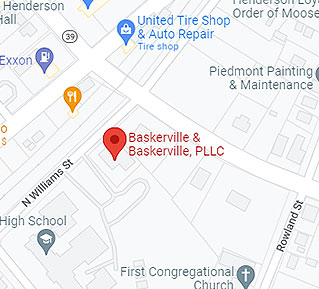
What Are The Most Common Types Of Drug Charges That Your Firm Handles In North Carolina?
The most frequently charged drug crime is possession of marijuana, possession of heroin, and possession of cocaine. When it comes to possession, it can be strictly be possession, or it can be possession with the intent to manufacture, sell, deliver, or traffic.
The order for lowest level drug cases to the highest level are possession, manufacturing, selling, delivering, then trafficking.
What Determines Whether A Drug Arrest Is Going To Be Charged At The Misdemeanor Or Felony Level In North Carolina?
Whether someone is charged with a felony or a misdemeanor depends on two factors. It depends on the classification and amount of the controlled substance. For example, marijuana can be a misdemeanor if it is less than an ounce and a half. Anything above an ounce and a half of marijuana is a felony. However, for other substances such as perhaps cocaine, there is never a misdemeanor charge. Any amount of cocaine is going to be a felony. In addition, any amount of heroin is also going to be a felony. Thus, it depends on the amount, and the schedule classification of the drug.
What Are The Potential Sentencing Penalties For Misdemeanor And Felony Drug Convictions In North Carolina And Also The Additional Life Consequences That You Might Face?
Misdemeanors and felonies get sentenced according to a structured sentencing chart. Using the structured sentencing chart as a reference, the judge will consider any prior criminal history, including how many times they were convicted of committing crimes in the past. The clients criminal history will be broken down by severity of the crime.
Using the chart system, the maximum you can get on a class I misdemeanor is a 120 days in jail. People who get a 120 days in jail when they’re convicted of a class I misdemeanor typically have at least five prior convictions on their record. With misdemeanors, you will be sentenced an exact number of days depending on where your case falls.
The same concept applies to felonies on a larger scale. However, with felonies, you will be sentence within the range between a minimum and maximum sentence. With felonies, you have a minimum number of months up to a maximum number of months depending on your prior criminal record and the severity of the crime. For example, the most serious felony classification is a class A felony. Class A felonies cover first degree murder. Even if someone has no prior criminal record, if they commit a first degree murder, they’re getting life in prison without parole. If not, the death penalty. Class A felonies are the most serious; in North Carolina a class I felony is the lowest.
What is the class I felony? Possession of greater than an ounce and a half of marijuana will be considered a class I felony. Before being sent to jail for a class I felony, someone must have a significant prior criminal record. So, if you have a significant prior criminal history and are convicted of a low level felony, it’s likely an experienced attorney can prevent you from going to jail. If you have a significant criminal history, you’re certainly going to jail unless you have a lawyer to try negotiating on your behalf.
Let’s say you get convicted of a low level felony. Even as a low level felon, once you’re convicted your voting rights are taken away. Convicted felons can’t even register the vote. Only once you have completed your full sentence including probation, paying all restitution and court fees, and finished community service, then you can finally apply to have your citizenship rights restored. Until then, you can’t vote. Convicted felons also cannot legally possess firearms. If you do, you’ll be charged with another felony. Therefore, there are many potential collateral consequences of felony convictions.
Deferred Prosecution is an alternative sentencing program for people that do not have prior criminal records. Deferred prosecution allows us to negotiate the outcome. We can negotiate for community service, drug testing over a period of time, or taking a course. Once we negotiate these deferred prosecutions, if the client successfully satisfies the terms of the deferred prosecution then the attorney can file a petition for expungement. Expungement wipes away the arrest, the charge, the deferred, the dismissal, and anything else from the record.
When I was a member of the North Carolina House of Representatives, I co-sponsored a piece of legislation called the Second Chance Act that allowed non-violent felony convictions to take advantage of a deferred prosecution and then be eligible for expungement. The Second Chance Act is something I am proud to have had a hand in.
For more information on Drug Charges In North Carolina, an initial consultation is your next best step. Get the information and legal answers you are seeking by calling (252) 572-4495 today.

(252) 572-4495
